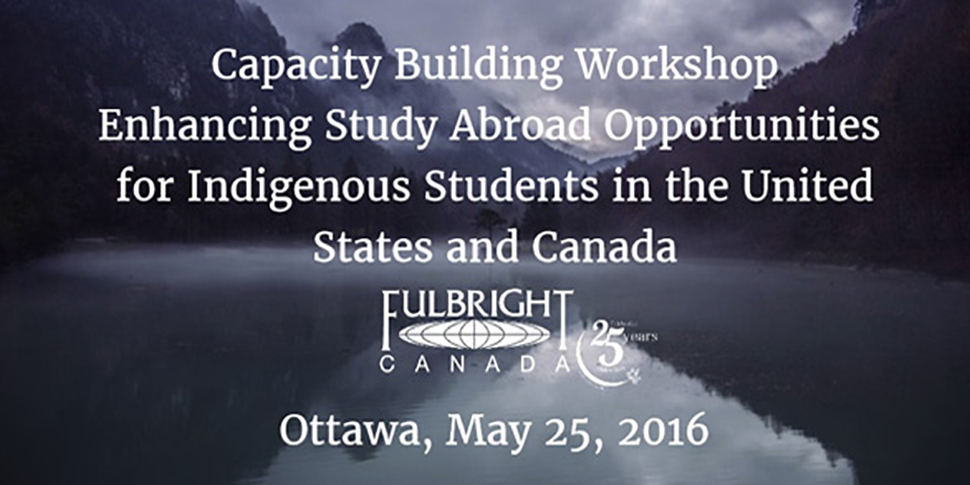
On May 25th, with the support of the U.S. Study Abroad Office in the Office of Global Educational Programs at the U.S. Department of State, Fulbright Canada hosted a workshop focused on study abroad opportunities for indigenous students. The workshop included presentations and conversations about best practices in recruitment and student support, special challenges that might exist for persons of indigenous heritage, options for full time study in the other country, and participation in cross-border exchanges.
This initiative is part of the Foundation's larger commitment to reach out to underrepresented populations, including indigenous persons throughout North America.
The keynote speech was delivered by Dr. Mike DeGagné, President and Vice-Chancellor of Nipissing University. His presentation was followed by a panel discussion on innovative programs featuring Dr. Keith James, Director of Tribal Relations at the University of Arizona, Ms. Gloria Lopez Esq., System-wide Affirmative Action Officer, Office of Diversity, Equity, and Inclusion, State University of New York, and Ms. Debra J. Parrish, President of Keweenaw Bay Ojibwa Community College (KBOCC). Dr. James and Ms. Lopez are Fulbright Canada alumni and know the value of international exchange between the two countries from their own experiences. The panel was moderated by Dr. Melody Burkins, Associate Director for Programs & Research, The John Sloan Dickey Center for International Understanding and Adjunct Professor, Environmental Studies Program, Dartmouth College.
Participants in the workshop included senior administrators, faculty members in Native American and Indigenous Studies departments, and representatives from study abroad offices from across both countries, as well as representatives of several U.S. tribal colleges.
The goal of this workshop was to allow universities and colleges on both sides of the border to learn from each other and, while acknowledging the different and specific contexts of indigenous peoples in both countries, to address issues of shared interest.



